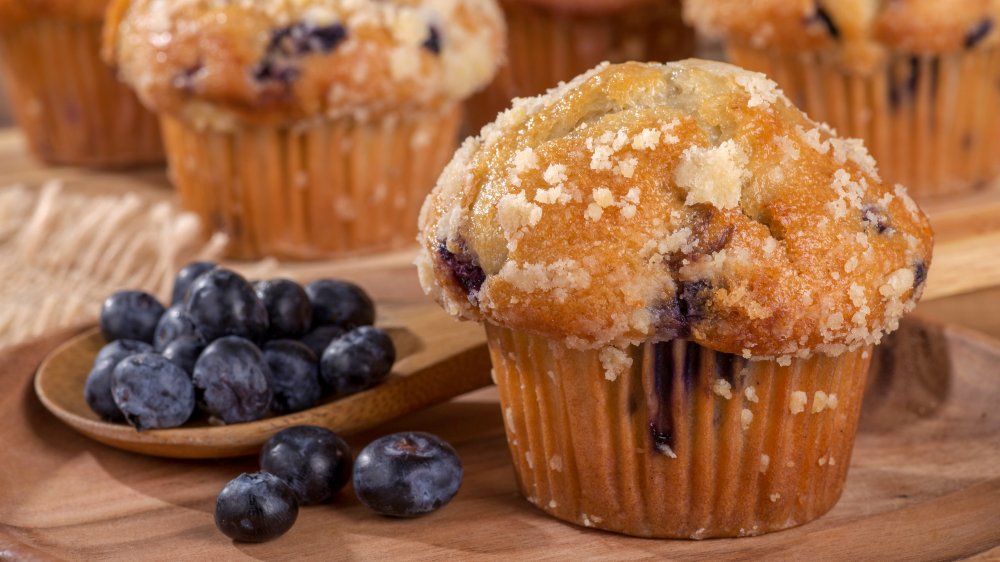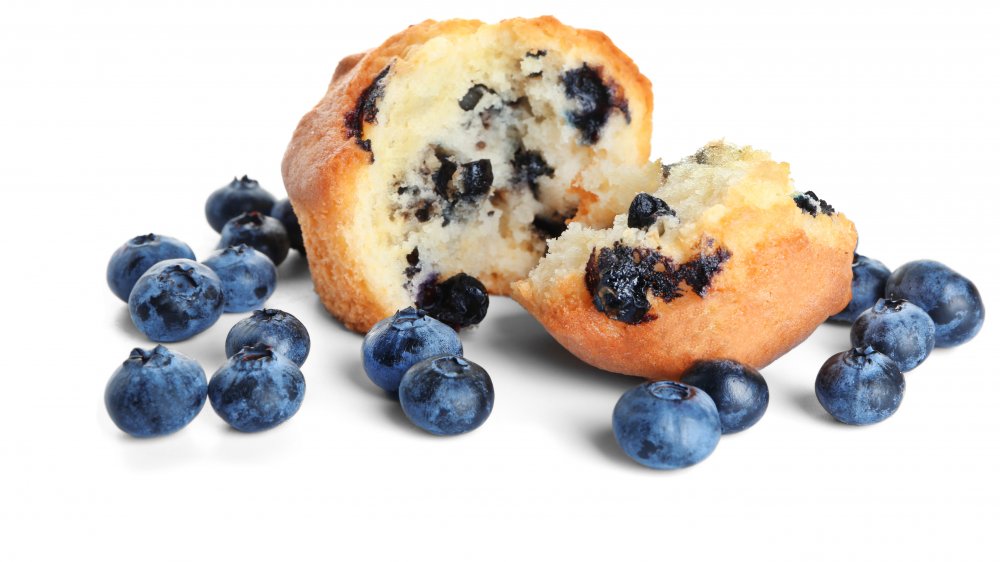Don't Believe This Myth About Blueberry Muffins
You have most likely heard the old adage, "An apple a day keeps the doctor away," but if you have been keeping up with dietary news, you can't escape hearing about how blueberries contain huge amounts of antioxidants or get classified as a superfood. According to the BBC, the fruit contains high levels of vitamin C, fiber, and has a low calorie count, all while supporting blood vessel strength. With all this hype around the berry, a serving of blueberries in any form must present some health benefits, right?
Don't get carried away with all of the good news surrounding the food too quickly. While basic servings of blueberries can offer some nutritional benefits, the inclusion of the berries in other foods can't automatically make anything they touch healthy. The blueberry muffin serves as a classic example of this fact, as this unhealthy baked good masquerades as a healthy snack that can throw off your whole eating plan for the day. According to the Harvard School of Public Health, this item loads up its carbohydrate count with a ton of sugar and processed white flour. The lack of fiber in this fast-burning carb bomb means you won't even make it halfway through your morning without feeling hungry if you solely rely on this muffin as your breakfast.
What does a healthy blueberry muffin look like?
Knowing what nutritional benefits a healthy breakfast should offer can make anyone rethink their stance on blueberry muffins. According to the Harvard Medical School, a healthy breakfast should include fruits or vegetables, whole, unprocessed grains, or nuts, and a healthy protein and fat, such as yogurt. The fruits or vegetables should constitute a major portion of your breakfast, as they contain large servings of fiber to keep you feeling full through the morning, while the grains and yogurt keep your insulin levels from spiking and maintain that satiated feeling for longer periods of time.
While your typical blueberry muffin has some fruit, it doesn't constitute the majority of the fiber count of the pastry. According to the Harvard School of Public Health, the perfect muffin would contain double the fruit, while the overall size of the baked good would shrink to 50% of its size. Heart-healthy canola oil would provide the fat content instead of butter, and the flour would consist of a mixture of whole-wheat, almond, and white flour to bulk up the fiber levels. With just a few alterations, the typical café muffin gets a complete makeover that can make any morning great. With all of these subtle nutritional pitfalls lurking just under the display case at bakeries and coffee shops nationwide, everyone should reconsider what makes a muffin healthy.

